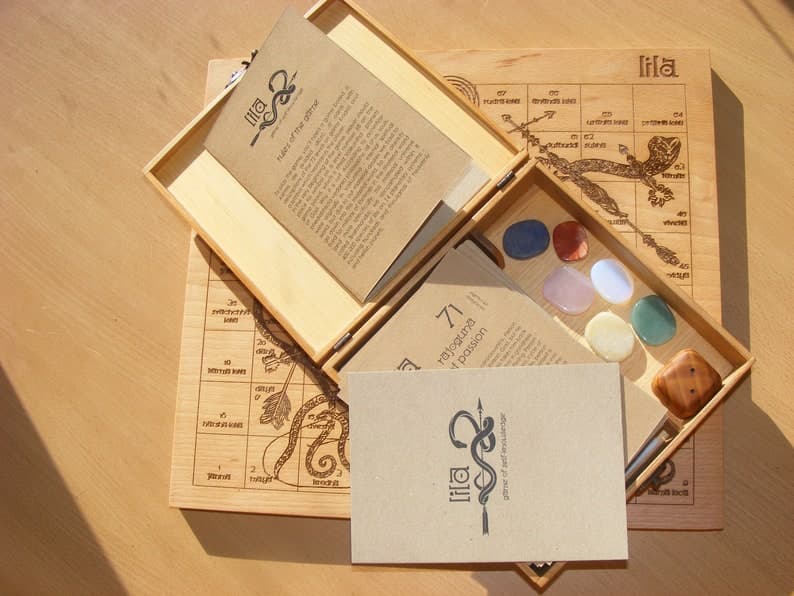This project is very important to me personally. It allows me to look back and appreciate the amazing way in which different ideas unfolded and many parts of my life came together. It’s something that was incorporated into my university program, and something that has always resonated with me. I have always believed in these ideas. I very much ask you not to argue or prove that X is better than Y. There are a huge number of models in the scientific world, and one model/opinion may not match another model/opinion.
https://sapienmedicine.gumroad.com/l/caeza
https://sapienmedicine.gumroad.com/l/DXkjw
These fields have played a huge role, and now the Captain has allowed these technologies and concepts to expand and improve as much as possible ![]()
This project consists of 4 large blocks, and numerous parts and structures. I will try to do a brief overview ![]()
![]()
The first part of the project is based on the concept of Jose Stevens - a famous psychologist and author of such books as “Michael’s Guide”, “Secrets of Shamanism. How to use ancient wisdom to improve and enrich your life”. In his works, he combines the methods of traditional psychology with religion, philosophy and myths.
TAME YOUR DRAGONS
The book “Transforming Your Dragons” is unique: it is interesting and entertaining for the average reader and useful to professionals in the field of psychology. The book can help not only those people who are faced with the presence of one or another behavioral type (or dragon), but also parents who want to bring up their children as a complete person. Each negative quality originates in childhood, and often it is a certain type of behavior of parents in relation to their children is the cause of a dragon in the child.
Stevens has identified 7 main types of negative behavior that interfere with being a complete person. Describing each of them, he emphasized that all psycho-emotional problems are connected with certain internal blocks and fears. It is these that “guide” people in making important life decisions rather than common sense.
These types of behavior are called sins or vices in religion. In psychology you can find alternative names of behavioral types: frustration, procrastination, neurotic diseases, deviant behavior, mental disorders […]. The difficulty in recognizing dragons is that they can put our guard down, easily assuming the guise of positive qualities. In this case, it is important to establish the real reason for this or that action, from what motives it is committed. Most importantly, be very honest with yourself.
Additional information you can find yourself. In the Internet you can also find modifications of this concept by other authors.
![]()
The next section is SOCIAL-EMOTIONAL INTELLIGENCE TECHNOLOGIES
How often do we experience anxiety for unknown reasons, react to events too emotionally, act differently than we would like in a given situation, and do not understand why this happens. Religions attribute everything to demons, grandmothers say “the Devil”, someone hears an inner voice, but in fact the demon is inside of us, and it sits in the part of the brain called the Amygdala. Daniel Goleman’s book, “Emotional Intelligence. Why It Can Mean More Than IQ” explains where some of our reactions come from. D. Goleman included in the structural components of emotional intelligence not only emotional abilities, but also characteristics of self-awareness, volitional qualities, social skills and abilities.
HR analysts at Google in one study analyzed the principles by which the company hires managerial staff. Surprisingly, candidates’ technical knowledge was the least important. And the priority is the ability to balance negative and positive in the team, the ability to listen to colleagues and be a good conversationalist. It turns out that intelligibility in people, understanding their way of thinking, actions and feelings is the key to success.
I did not base it only on the Goleman model. The project adapts and condenses numerous theories and concepts. If you do your own research, I recommend starting with the model of Peter Salovey and John Mayer, R. Bar-On; also pay attention to the concept of Russian psychologist I. N. Andreeva, who offered the world a new model. She argued rather harshly that in modern society the problem of competence in understanding and expressing emotions is quite acute because it is artificially imposed the cult of a rational attitude to life, embodied in the image of a certain standard - an inflexible and as if devoid of emotion superman. She emphasized the social meaning of emotion, and noted that a society that cares only about educating the mind is making a big mistake, for man is more human in how he feels than how he thinks.
Emotions reflect a person’s attitudes toward various spheres of life and toward himself, and intelligence serves precisely to understand these relationships. Some scholars propose to think of emotional intelligence as the ability to understand personality relations represented in emotions, and to manage the emotional sphere on the basis of intellectual analysis and synthesis. But unlike abstract and concrete intelligence, which reflect elements of the external world, emotional intelligence reflects the inner world, because of its connection to the individual’s behavior and interaction with reality.
EXTRA LINKS
What Is Emotional Intelligence, Daniel Goleman
History-of-EQ - Emotional-intelligence
Increase-your-eq - Emotional-intelligence
How to Improve Your Emotional Intelligence - Professional & Executive Development | Harvard DCE
IMPORTANT:
A New Layered Model on Emotional Intelligence - PMC
I am also sure that you can find a lot of information on this topic on your own.
PERSONAL THOUGHTS AND 1% THEORY
It is difficult to answer unambiguously the question of why we behave this way in a particular situation. But an honest answer yields reactions at three levels: meaning, body and emotion, which is one of the paradigms in the concept of emotional intelligence. If you change the response at one of those levels, the others will change. For example, you do your job well, but you realize that customers don’t come back repeatedly because you don’t know how to communicate with them. This makes you irritated, but realizing this will give you an insight on the level of meaning. On the body level there will be relaxation and a feeling of "a mountain has fallen from your shoulders. On the emotional level, it will be easier. You have found the real reason for your anger and irritation, even though it is hard to admit.
Emotional intelligence is a kind of base of the personality pyramid. The greater the volume of this pyramid, the more power and influence a person can have over his or her own life, the lives of others, and the world at large. To build an effective life strategy, you need to understand your strong drivers and pay attention to the weak ones. In conjunction with the IQ vector of intelligence, emotional intelligence forms the “Creators” life strategy. It helps one realize one’s potential and reach an upper level of self-actualization.
The development of emotional intelligence entails an increase in creativity. Your thinking changes, you begin to see a situation from different angles and find new non-standard solutions. Another point in favor of the development of emotional intelligence is the fact of a better assimilation of information and simplification of learning processes. Surely you have noticed that in a good mood the process of understanding and remembering new information is faster and of higher quality.
People with a high level of emotional intelligence are always interested in the people around them, regardless of their temperament. This inquisitiveness is due to their ability to empathize. They are flexible and constantly adapt to changing circumstances. They know that fear of change can completely paralyze them, jeopardizing their success and happiness. They know how to anticipate changes and always plan their actions for such an eventuality.
A high level of emotional intelligence allows them to take full advantage of their strengths and hide weaknesses that could set them back. High EI/EQ comes down to social awareness, that is, the ability to “read” other people and understand what they are going through. Over time, this skill develops into the ability to read characters. Such people see others as open books, understand what they are thinking and striving for, even if someone tries to hide it. They are self-confident, open to new ideas and in a good way “thick-skinned”. They know how to laugh at themselves and allow others to do the same, because they can clearly see the difference between humor and degradation.
People with a high level of emotional intelligence know how to distance themselves from their mistakes, but they don’t forget about them. They don’t go over their mistakes again and again, but they always remember them if they need to change something about themselves. They see that fine line between remembering and forgetting. If one remembers mistakes too often, one can lose confidence in oneself completely, but if one forgets about them altogether, one can repeat them. This delicate balance is based on the ability to see the mistakes as opportunities for growth, and to return to the right path when you fail. The negative emotions that surround all vindictive people inevitably cause them stress. Remembering wrongs, many subconsciously trigger survival mechanisms in themselves, trying to defend themselves or attacking back. Of course, when the threat is real, such a reaction is quite acceptable, but if we are talking about the affairs of long ago, it has a devastating effect on the body and over time can cause serious health problems.
Communicating with “difficult” people is irritating and exhausting. People with a high level of emotional intelligence are in complete control of the process of interacting with their detractors, analyzing their feelings. People with high emotional intelligence do not strive for perfection, because they know it does not exist. It is in the nature of human beings to make mistakes. If you strive for perfection, you constantly experience the bitterness of failure, which reduces or destroys motivation. As a result, you spend a lot of time complaining and thinking about what you could have done differently, instead of moving forward, enjoying what you’ve accomplished and setting new goals. It’s a stream of positive thinking that helps you get out of negative cycles and move forward to new horizons.
People whose pleasure and satisfaction begin to depend on the opinions of others are no longer the masters of their own happiness. When a person with a high level of emotional intelligence feels that he has done something good, he pays no attention to outside comments. Of course you cannot forbid others to express their opinions, but in no way should you compare yourself to them and submit to their desires. Your self-esteem must come from within, no matter what people around you say.
A MORE EXTENDED VERSION OF THE PROJECT CONSISTS OF
THEORIES OF SOCIAL INTELLIGENCE
THEORIES OF EMOTIONAL INTELLIGENCE
THE AMYGDALA BODY AND THE INTERNAL SABOTAGE MECHANISM
NEURO-PHYSIOLOGY; NEURO-PLASTICITY
THEORIES OF EMOTIONS
ROBERT PLUTCHIK’S PSYCHO-EVOLUTIONARY THEORY
LEVELS OF BODY ADAPTATION
TEN BASIC STRATEGIES OF SELF-REGULATION
CORRELATION OF EMOTIONS WITH CHARACTER TRAITS
PSYCHOLOGICAL DEFENSES
THEORY OF NEUROSES
FIVE POINTS OF BALANCE
SOME INFO: EQ/EI vs SI
The life of modern man, who performs many social roles, is characterized by a constant process of communication with a large number of people around him. That is why the question of communication process efficiency has always been relevant in social sciences. The problem of regulation and self-regulation in modern psychology is the key, because these aspects ensure the change of one’s own behavior, reactions and internal states of a person, as well as a person’s activity in the direction of realization of his goals.
Social intelligence is the ability to adequately solve problems and solve problem situations related to actual communication and mediated social relations. It is a personality trait that determines its success in social interaction and contributes to the retention of the flow of negative emotions. Because of this, it determines the behavior of the individual.
Some scientists consider the formation of SI in the context of personality socialization and argue that social intelligence is a “tool” of the psyche, which allows the individual to adapt to social reality and helps the best understanding of the meaning and type of social knowledge, social goals and objectives, and together leads to solutions of life problems.
It has been shown to be a distinct and coherent group of mental abilities related to the processing of social information. It is a group of abilities that is fundamentally different from those underlying the more “formal” thinking tested by “academic intelligence” tests (i.e. these tests do not deal with the behavioral manifestations of the individual).
The main component of social intelligence the scientist singles out - communicative-personal potential (communicative compatibility and psychological contactivity), readiness for everything new, sense of respect for oneself and others; ability to understand people and the motives that drive them, social imagination, social perception, ability to model and understand social phenomena. These skills ultimately make it possible to achieve harmony with oneself and one’s environment. An important part in the structure of social intelligence is a person’s self-esteem.
Also, the system of personal social intelligence includes emotional intelligence and it is expressed in many of its substructures in the form of an affective component. The theories of social intelligence themselves became the main premise and basis for the formation of EQ theories. The unifying category for EQ/EI and SI is communication. Each of the highlighted types of intelligence implies the realization of abilities to recognize and interpret the emotional states of other people. At the same time, a distinctive characteristic, in this case, is the orientation of communication.
Communicative potential of the communicative intelligence is aimed mainly at the production and further comprehension of own emotional experiences regarding situations of interpersonal communication, while the capabilities of the social intelligence are focused on communicative interaction.
American psychologist and co-author of one of the concepts of emotional intelligence, David Caruso, believes that emotional intelligence is not the opposite of mental intelligence. You cannot compare EQ and IQ separately - each is very important. By developing mental and social skills in equal measure, a person realizes his or her potential. And that means learning to influence one’s life, other people and the world at large.
“It is not the triumph of the heart over the head-it is the only way both cross over.”
Modern philosophers, following the thinkers of antiquity, emphasize the relevance of the problem of developing emotional competence - the openness of man to his emotional experiences, linking its potential with the harmonious interaction of heart and mind, affect and intellect.
“To transform the intellect into the mind, it is absolutely necessary to open one’s heart first… The mind is the intellect in tune with your heart.”
Osho
The next block in the project is: HIGHER INTELLIGENCE OF THE HEART
(HEART HEALTH - HEART CHAKRA - HEART COHERENCE - HEART-BRAIN CONNECTION […])
It is based on various research in this area by the Heart Mathematics Institute. I recommend doing your own research, a huge amount of information is absolutely available. Pay attention to their library and their technology:
Understanding your own emotions and the emotions of your interlocutor, his motivations, desires and aspirations is the shortest way to find common ground with any person. In doing so, it is possible to avoid ambiguity and achieve the best possible result for all parties. And the ability to not only recognize, but also form positive emotions makes a person practically omnipotent in everything that concerns human relationships, both in business and in personal life.
But how to master the necessary skills easily and quickly? Play. The final point of the project is: LEELA
SOME INFO
Leela is the world’s oldest self-discovery game. And not just any game, but a real psychological/spiritual/intellectual training in game form. Leela is a complete reflection of your life in miniature. This meditation and negotiation system, thousands of years old, was created by sages of the past for spiritual development, exploring your inner states and resources, attuning to your path and deeply realizing the essence of the game called Life. Leela helps you remember that you are the Creator of your life.
We all want self-actualization, and everyone has a different idea of it. Usually it has to do with success in work, happiness in relationships, well-being, life choices, health, etc. There are many methods of transforming yourself and your life, but this game method is not only very interesting, but also has undeniable clarity and incredible effectiveness.
Leela provides very subtle and accurate feedback on how we live and move through life. The game ends when the player penetrates its meaning, finds his states and answers his original question. This is a universal system if you can not figure out the problematic issues, yourself and change the situation in your life; you lack inspiring meaning, no motivation and joy of existence in the routine of everyday life; want to discover new things, come to self-fulfillment and make your life richer in every sense.
We are all born, growing up, laughing and crying, striving for something and running from something, loving and hating, playing different roles in this world, in this big game called Life. Everything we do in this big game is all the little games that make up one big game. This is Leela, the divine game of creation. The word “lila” itself means “game” in Sanskrit. It is a game of life that involves matter as well as our aspirations, emotions, and thoughts.
The game Leela helps players move beyond the usual vision, stand above the problem, see what was previously hidden, and resolve a negative situation. Leela is a divine game in which the Higher Self is both Creator and Player, and the game itself is expressed in material reality. When we play a game Leela, the playing field through which our game symbol moves acts as a certain microcosm in which, as in a hologram, the entire world is present. Thus, the insights and realizations we gain in this game are automatically transferred to the macrocosm, this universe. This is how we transform our destiny as we realize what was previously hidden from us.
Leela is a tool for tuning into the subconscious and superconscious. In the game the participant seeks his own, unique ways to work with his personal resources and limitations, and the game mechanics and facilitator only help him do this. No general ready-made answers, impositions or dogmatism. Everything is very individual and genuine for each participant.
Leela the Game of Self-Knowledge -Lila Chakra Board Game – Holistic Center of Health and Happiness
You can also do additional research yourself.
Thank You Dreamweaver ![]()
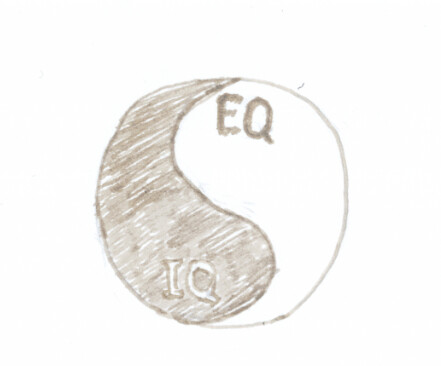
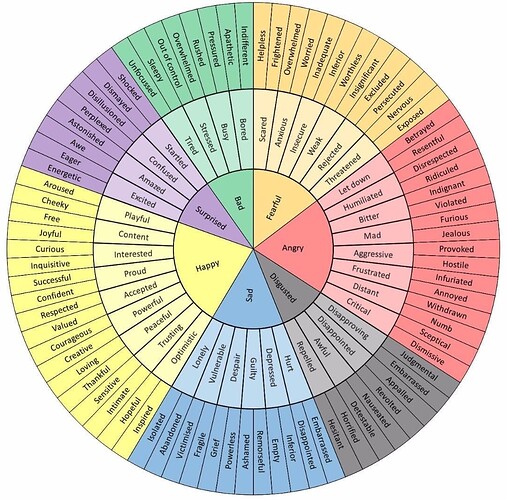
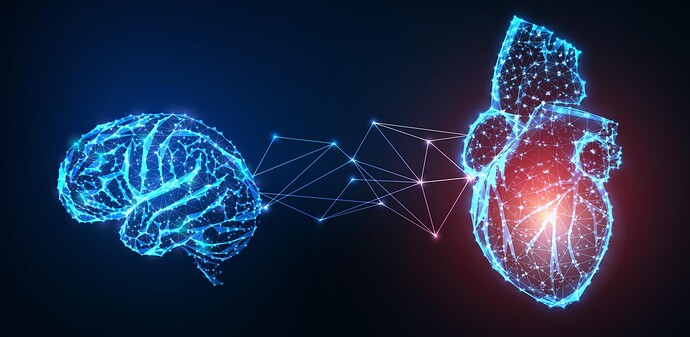
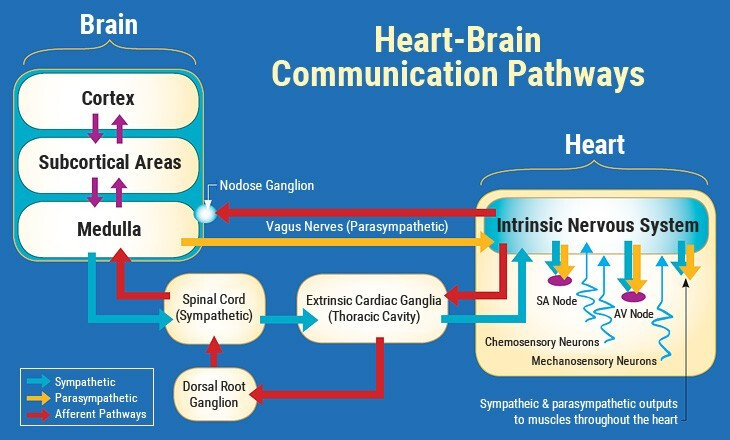
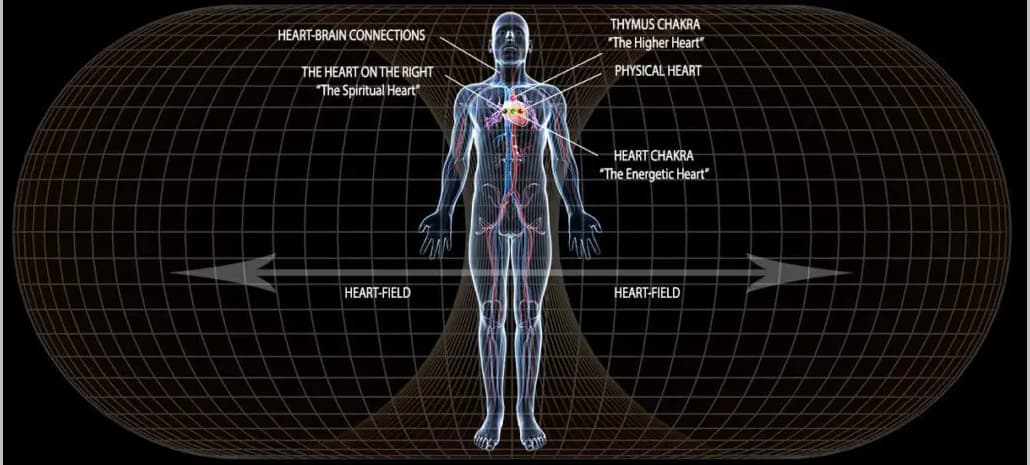
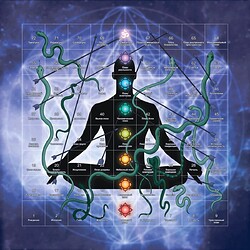

 this is so amazing! Thanks for this creation
this is so amazing! Thanks for this creation 
 but that is not what I meant. It feels as if there is a field around my heart area and it is this field as well as my heart that is pulsating. When I looked down from within it looked like a top view of a giant purple jelly fish expanding and contracting. What I mean is that the energy was slightly dense but at the same time clear and see through just like a jelly fish is. Even though it is currently working on my sadness and making me feel this sense of longing it is at the same time making me feel incredibly loved which in itself makes me want to cry because to receive so much love makes me feel very emotional. I am also feeling a lot of pressure on the sides of both my temples. I think I am downloading a lot of info on what is happening within me and at the same time strengthening the connection between my heart brain and my actual brain. I know that all of this will be revealed to me over time and as I evolve and that the more I work with this NFT the more little aha moments I will experience.
but that is not what I meant. It feels as if there is a field around my heart area and it is this field as well as my heart that is pulsating. When I looked down from within it looked like a top view of a giant purple jelly fish expanding and contracting. What I mean is that the energy was slightly dense but at the same time clear and see through just like a jelly fish is. Even though it is currently working on my sadness and making me feel this sense of longing it is at the same time making me feel incredibly loved which in itself makes me want to cry because to receive so much love makes me feel very emotional. I am also feeling a lot of pressure on the sides of both my temples. I think I am downloading a lot of info on what is happening within me and at the same time strengthening the connection between my heart brain and my actual brain. I know that all of this will be revealed to me over time and as I evolve and that the more I work with this NFT the more little aha moments I will experience.













